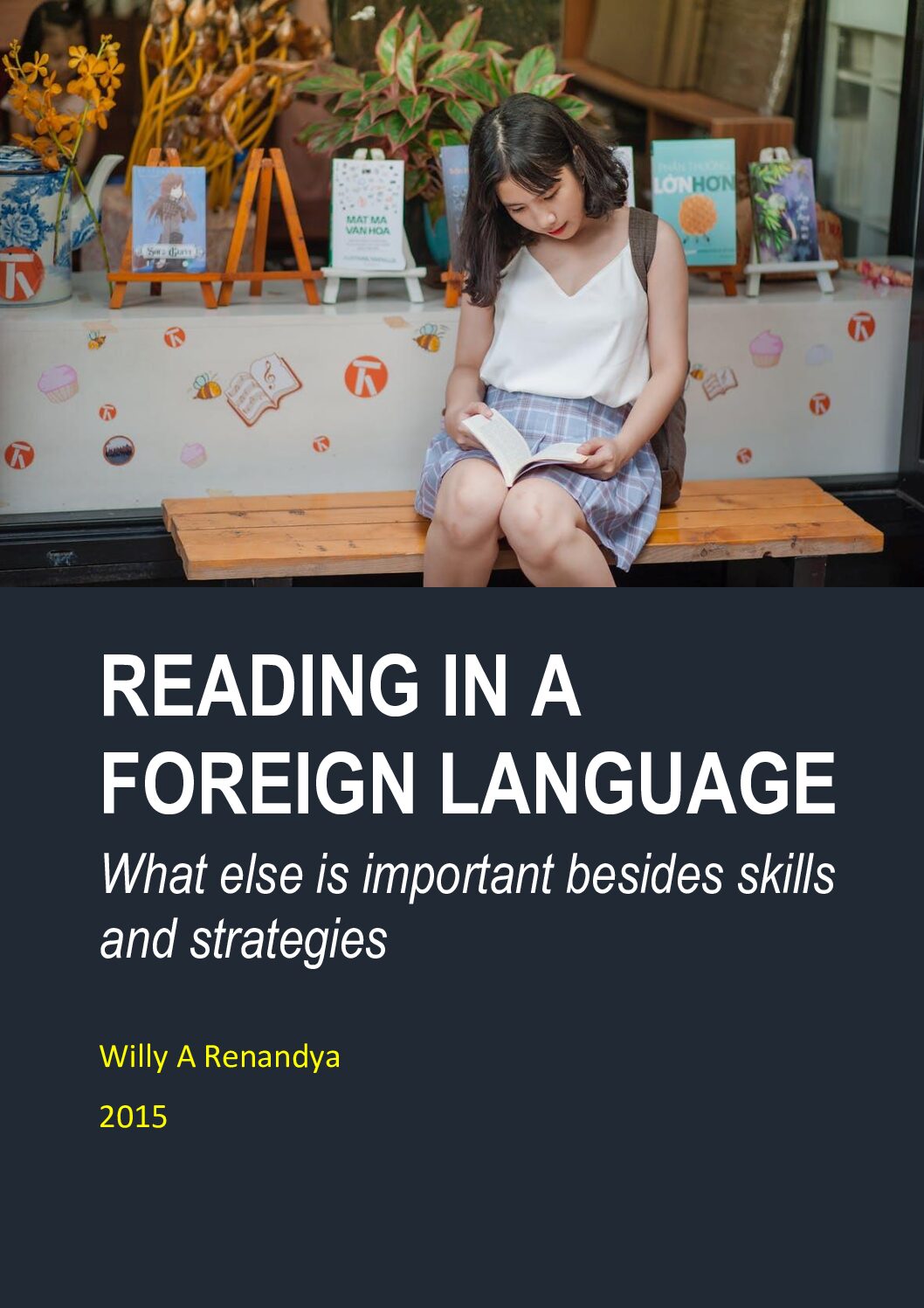Reading in a Foreign Language: What Else is Important Besides Skills and Strategies?
In the past three decades or so, L2 reading research has focused on the question of how reading strategy can be taught to help L2 learners read more effectively and with greater comprehension. One important conclusion that can be drawn from this huge body of research is that strategy instruction can indeed improve comprehension. However, closer inspection of these studies seems to indicate a more complex picture: (i) not all strategies are equally effective (i.e., some are more effective than others), (ii) not all students benefit from strategy instruction. (iii) little is known about how strategies work, (iv) more importantly, the effect of strategy instruction may not be as large as many believe it is. In the absence of a strong research evidence for teaching reading strategies, it appears that we would need to exercise caution when implementing it in a reading programme. Brief instruction on those strategies (e.g., monitoring strategy) that have consistently shown positive effects on reading comprehension seems sensible, but organizing a whole reading problem for lower proficiency learners around the notion of strategies may not be particularly productive. With lower proficiency L2 learners, it seems sensible to focus more on developing their reading fluency, increasing the breadth and depth of their vocabulary and developing a rich base of background knowledge, all of which can be effectively acquired through rich and wide exposure to the target language.
Introduction
For the past few decades, L2 reading pedagogy has been heavily influenced by findings from research into reading strategies, so much so that teaching L2 reading is often considered synonymous with teaching a set of reading strategies. Reading strategies such as skimming, scanning, predicting, activating prior knowledge, guessing new words from textual and contextual clues are particularly popular with L2 teachers. Thus it is not uncommon to see a reading lesson where the teacher spends most of the classroom time explaining and showing students how these strategies could be used to help them comprehend a reading passage. Often so much time is spent on teaching these strategies that one wonders whether students actually do any meaningful reading practice in the reading lesson. As Field (2002) rightly pointed out, L2 students are often asked to do many reading-related activities that may not contribute directly to the development of their reading ability. She further points out that what students need most in a reading class is not just learning how to use reading skills and strategies, but to actually be engaged in frequent and meaningful reading of text, where students focus their attention on the most important thing about reading, i.e., understanding and appreciating what the author of the reading passage is trying to convey to the readers.
The purpose of this paper is to examine two major approaches to teaching reading: strategy-based and text-based approaches. The former views reading strategies as a critical factor that influences students’ reading development; the latter on the other hand considers the text as the focal point of learning, i.e., the text itself provides a major source of students’ reading development. While both views are supported by research, I would argue that for many students for whom English is a foreign language and who generally have not acquired sufficiency proficiency in the language, the text-based approach (e.g., via extensive reading) might be more useful for this group of learners than the strategy-based approach.
To continue reading, click here.


I need the article, how to download it?